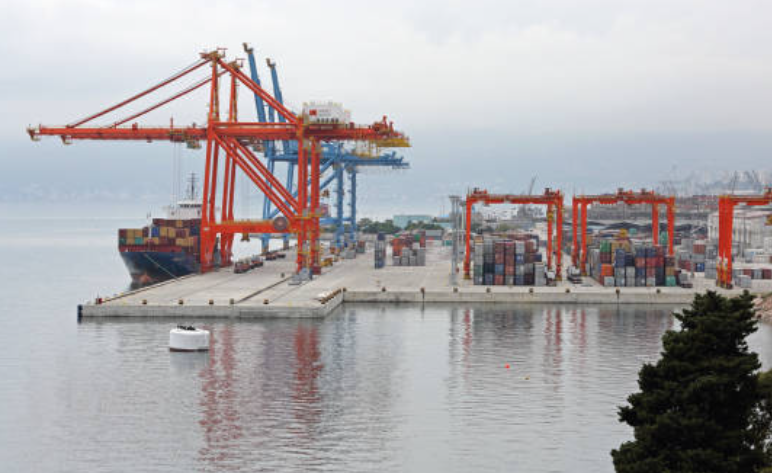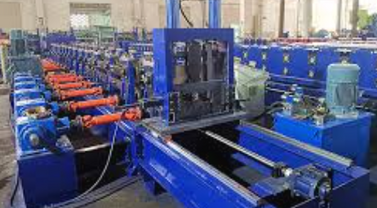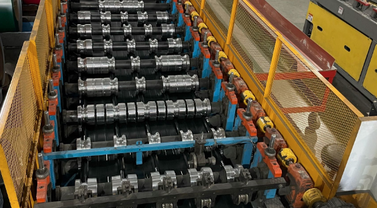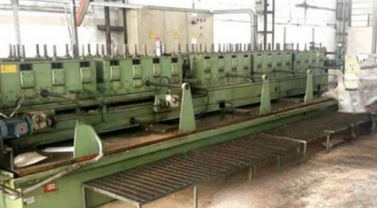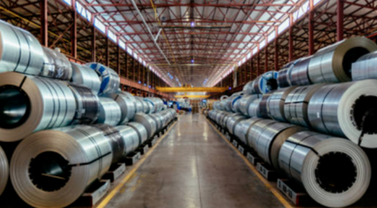Importing roll forming machines into Croatia presents an exciting opportunity for businesses in the construction, automotive, and manufacturing sectors. However, there are key steps and considerations that need to be taken into account to ensure a smooth and efficient process.
1. Understand Croatia's Import Regulations
Croatia is a member of the European Union (EU), which means that the import regulations follow EU guidelines. This includes:
- Customs Tariffs: Roll forming machines generally fall under the "machinery" category, with tariffs depending on the machine’s specifications. Make sure to check the current customs duties and Value Added Tax (VAT), which in Croatia is 25%.
- CE Marking: Roll forming machines imported into Croatia must meet EU safety and environmental standards. Ensure that the machines have CE marking, indicating conformity with EU regulations, particularly the Machinery Directive (2006/42/EC).
- Technical Documentation: You will need to provide detailed technical documentation, including user manuals, maintenance guides, and safety instructions in Croatian or another EU-recognized language.
2. Research Machine Specifications and Compliance
Before importing, ensure that the machine’s specifications meet Croatian and EU safety, environmental, and performance standards. Key factors to consider include:
- Power Requirements: Croatia operates on a 230V, 50Hz electrical system. Verify that the machine’s electrical components are compatible with this setup or ensure you have the necessary adaptors or transformers.
- Noise and Emission Standards: Machines must comply with EU noise and emissions regulations, which are particularly stringent on industrial equipment. Make sure to request certificates from your supplier that the machine adheres to these standards.
3. Choose a Reliable Supplier
Sourcing a trusted roll forming machine supplier is critical to the success of your import. Consider suppliers that have experience shipping to EU countries. When selecting a supplier:
- Check for Experience in Exporting to the EU: Suppliers with a proven track record in the EU market will be more familiar with the documentation, customs, and technical requirements.
- Warranties and After-Sales Support: Ensure the supplier provides comprehensive warranties and offers after-sales support. Since Croatia is relatively new to large-scale manufacturing machinery imports compared to other EU countries, having access to technical support and spare parts is important.
4. Shipping and Logistics
Shipping roll forming machines to Croatia requires careful planning due to their size, weight, and complexity. Here are key steps to consider:
- Choose the Right Incoterms: Work with your supplier to determine the best Incoterms (International Commercial Terms) for shipping. Incoterms like CIF (Cost, Insurance, and Freight) or DDP (Delivered Duty Paid) ensure that the machine arrives in Croatia with minimal hassle.
- Freight Forwarder: Hire a reputable freight forwarder who can handle the complex logistics of transporting large industrial equipment. They can assist with customs clearance, port handling, and final delivery to your facility.
- Import Documentation: Make sure you have all necessary paperwork ready, including the invoice, packing list, bill of lading, certificate of origin, and any licenses required for importing machinery into Croatia.
5. Customs Clearance
Clearing customs in Croatia requires proper documentation and awareness of local procedures:
- Tariff Classification: Properly classify the roll forming machine to determine the customs duties and taxes. Misclassification can lead to delays or additional fees.
- Inspection and Clearance: Croatian customs may conduct an inspection to verify that the machine complies with all import regulations. Ensure that you have the necessary CE certification and other regulatory documents ready for inspection.
6. Installation and Training
Once the roll forming machine arrives, you'll need to arrange for installation and training:
- Hiring Local Technicians: If your supplier doesn’t offer installation services in Croatia, consider hiring local technicians who are familiar with roll forming machines. Many suppliers may also offer remote support.
- Operator Training: Ensure your team is trained on how to safely and efficiently operate the new machinery. This could include on-site training provided by the supplier or remote training sessions.
7. Maintenance and Spare Parts
Roll forming machines require regular maintenance to keep them operating smoothly. Be sure to:
- Create a Maintenance Schedule: Set up a schedule for routine maintenance, including lubrication, part replacement, and system checks.
- Stock Spare Parts: Ensure that you have a stock of essential spare parts readily available or easy access to a supplier in Europe that can provide them quickly to minimize downtime.
8. Tax Incentives and Financial Support
Croatia offers several incentives for businesses investing in machinery and manufacturing equipment:
- Investment Grants: Investigate if there are any Croatian or EU grants available for purchasing industrial equipment. The EU often provides funding for projects that enhance industrial productivity and energy efficiency.
- Tax Deductions: Businesses in Croatia may benefit from tax deductions on capital expenditures like machinery. Consult with a local accountant or tax advisor to explore these options.
Conclusion
Importing roll forming machines into Croatia can significantly enhance your business capabilities, especially in the growing construction and manufacturing sectors. However, it’s essential to navigate Croatia’s import regulations, supplier selection, logistics, and installation process carefully. By following this guide, you can ensure that your importing process is efficient, compliant, and cost-effective, enabling you to benefit from advanced roll forming technology in Croatia’s thriving market.
